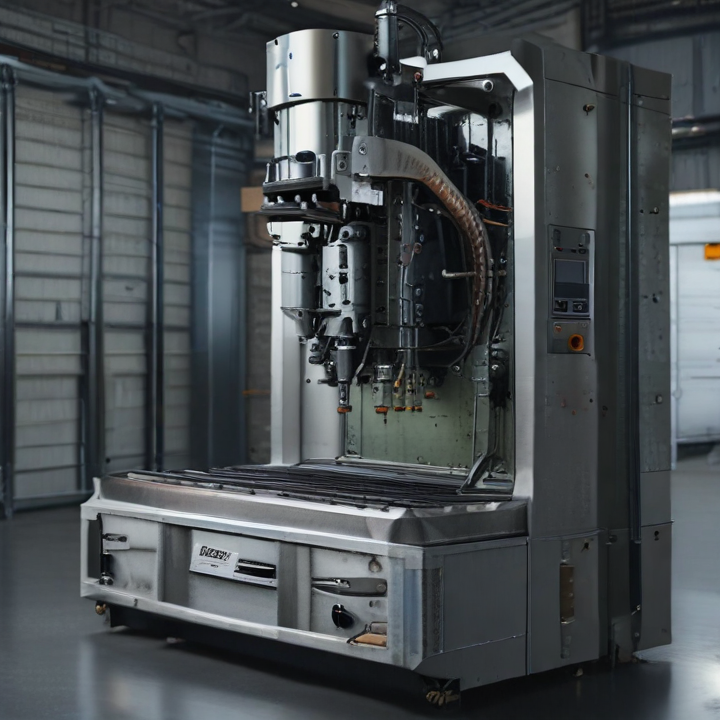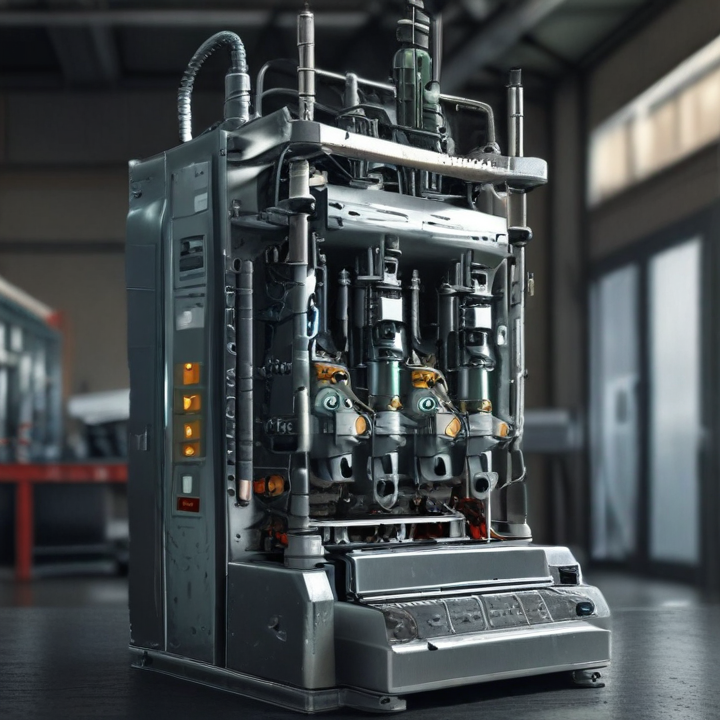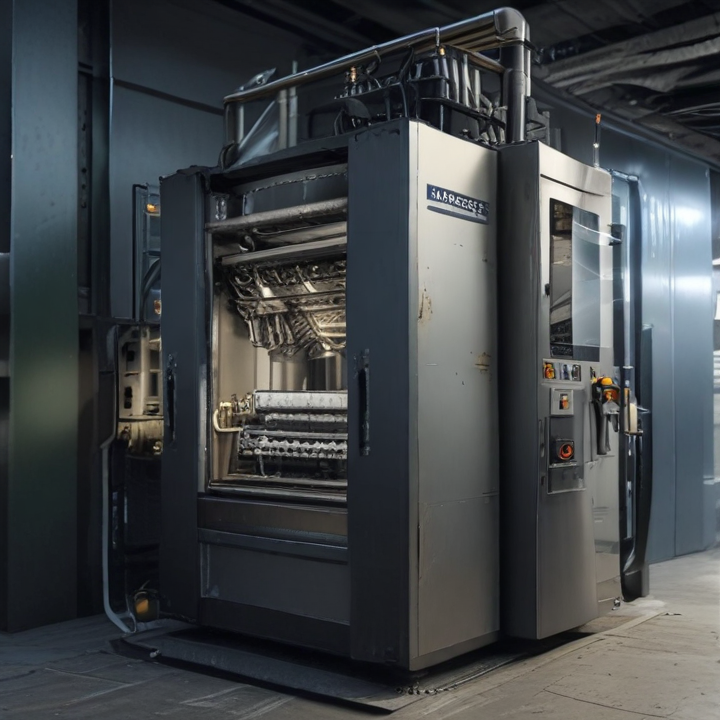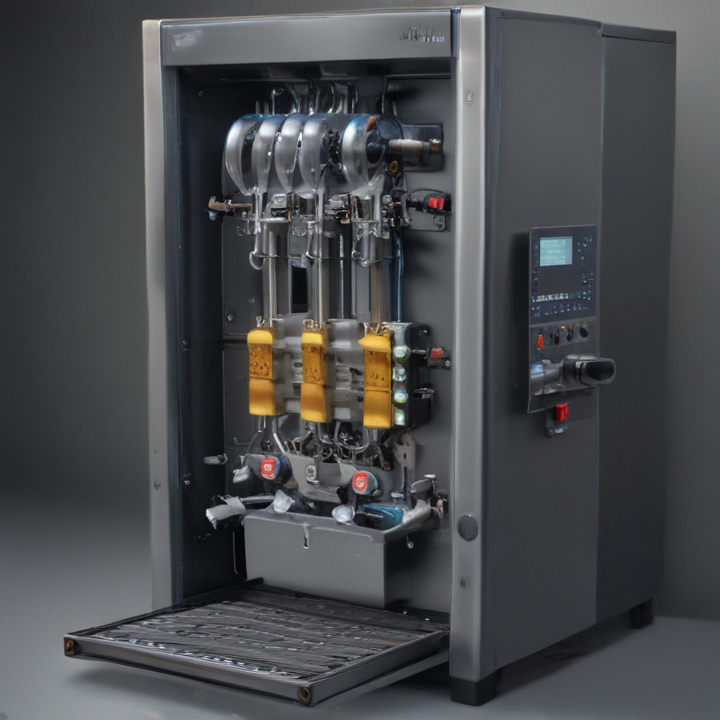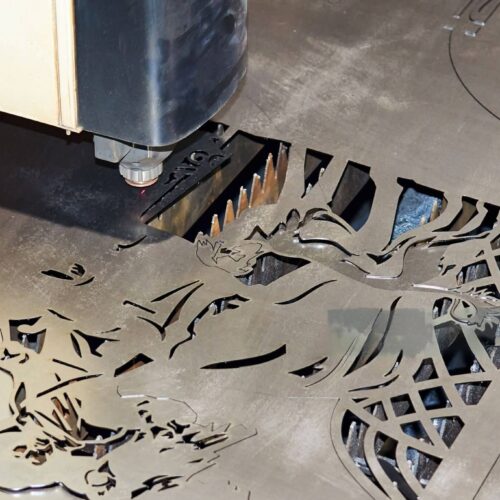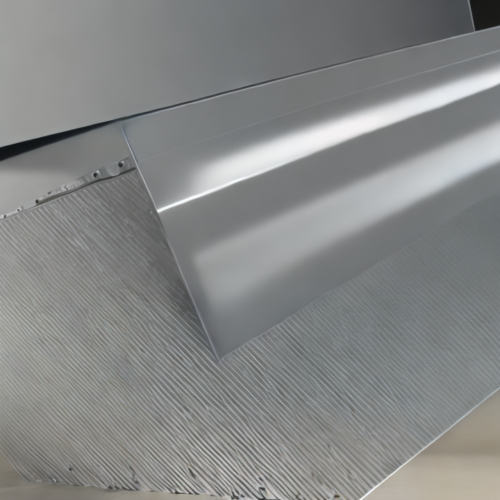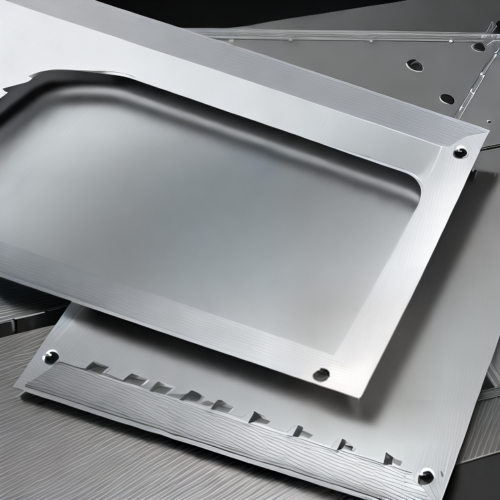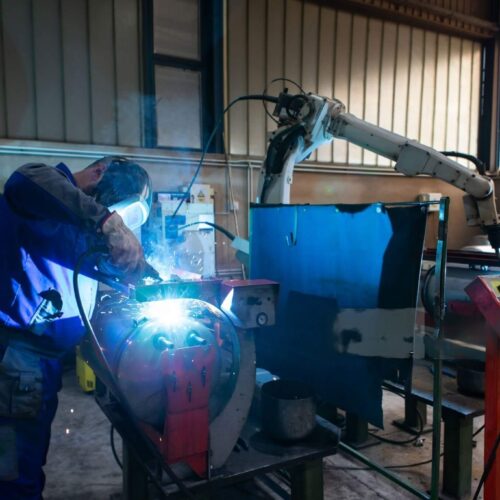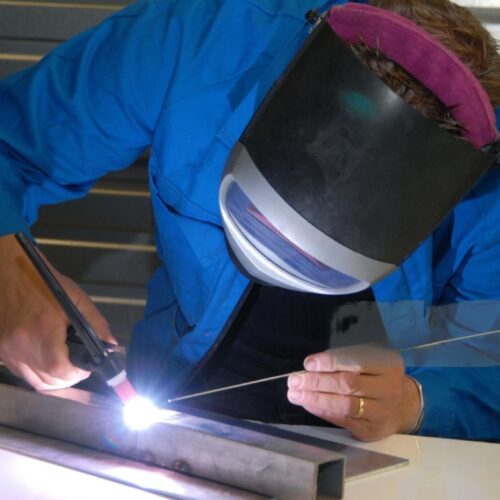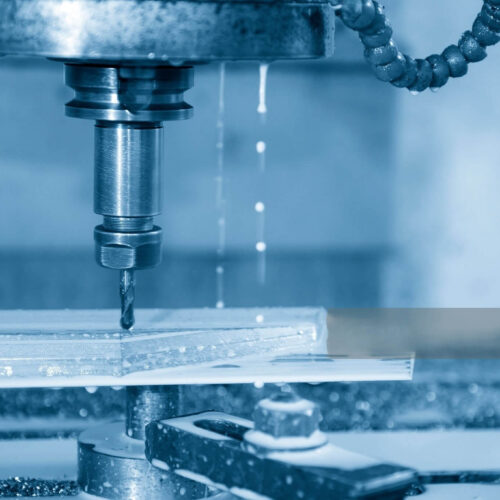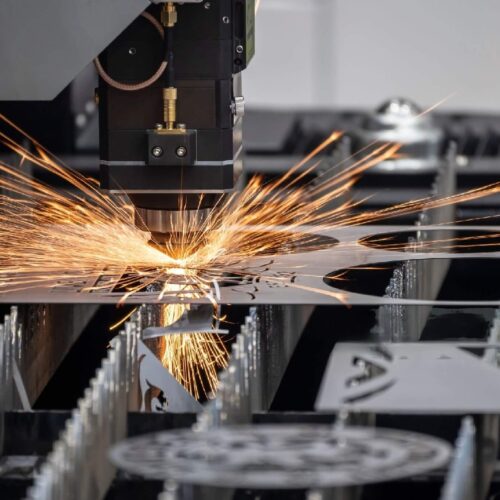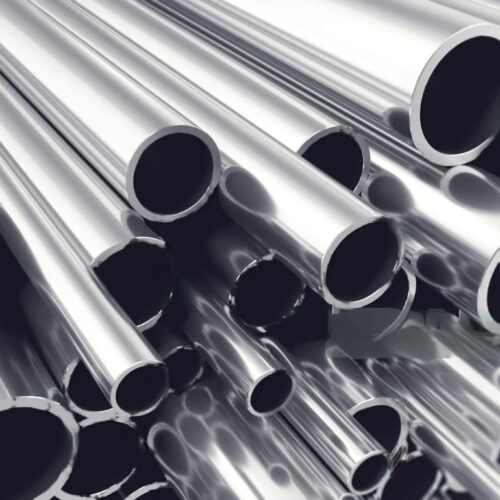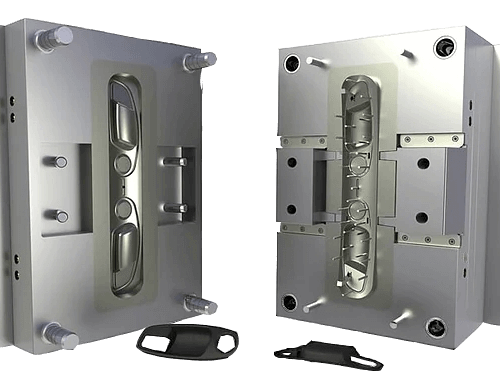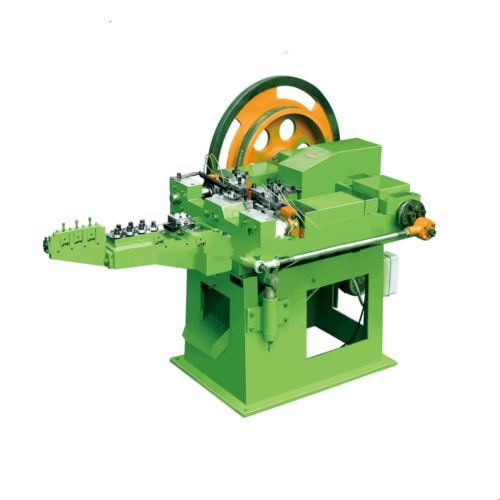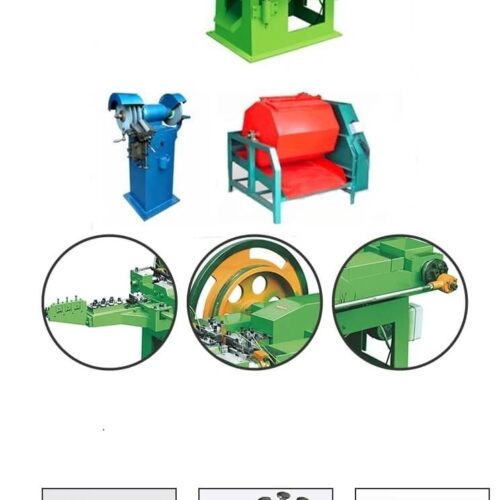ffs machine Safety Certifications
Form-Fill-Seal (FFS) machines are integral in packaging operations, ensuring products are filled and sealed efficiently. Ensuring these machines meet safety standards is crucial to protect operators and maintain production quality. Here are key safety certifications relevant to FFS machines:
1. **CE Marking (European Union)**
– Indicates conformity with health, safety, and environmental protection standards for products sold within the European Economic Area (EEA).
– Essential for market access in the EU.
2. **ISO 13849 (Safety of Machinery)**
– Provides guidelines for the design and integration of safety-related parts of control systems.
– Ensures the machinery performs safely even in case of component failure.
3. **OSHA Standards (United States)**
– Occupational Safety and Health Administration (OSHA) regulations ensure safe and healthy working conditions.
– Relevant standards include 29 CFR 1910.212 (General requirements for all machines) and 29 CFR 1910.147 (Control of hazardous energy).
4. **ANSI/PMMI B155.1**
– A safety standard specific to the packaging machinery industry.
– Covers risk assessment, safeguarding, and control systems to enhance machine safety.
5. **UL Certification**
– Underwriters Laboratories (UL) certification ensures electrical and fire safety standards.
– Critical for components like control panels and electrical systems in FFS machines.
6. **CSA Standards (Canada)**
– Canadian Standards Association (CSA) provides certifications that cover electrical safety and performance.
– Aligns with both Canadian and international safety requirements.
7. **GMP Compliance (Good Manufacturing Practice)**
– Ensures that products are consistently produced and controlled according to quality standards.
– Although not a safety certification per se, GMP compliance ensures operational safety and product quality in pharmaceutical and food industries.
8. **Risk Assessment and Safety Audit Reports**
– Conducting comprehensive risk assessments and regular safety audits helps in identifying potential hazards.
– Ensures ongoing compliance with safety standards and continuous improvement in safety measures.
Each certification and standard plays a vital role in ensuring that FFS machines operate safely, protecting both the operators and the products being packaged. Compliance with these standards is not only a legal requirement but also a best practice for maintaining a safe and efficient manufacturing environment.
List Reference Technical Parameters of “ffs machine”
A Form-Fill-Seal (FFS) machine is used in packaging processes to form bags or pouches from a flat roll of film, fill them with product, and seal them closed. Here are the key technical parameters for FFS machines:
### **General Specifications**
1. **Machine Type**: Vertical or Horizontal
2. **Material Compatibility**: Polyethylene, Polypropylene, Laminates, etc.
3. **Output Rate**: Typically ranges from 30 to 120 pouches per minute (varies by model and application)
4. **Pouch Formats**: Pillow, Gusseted, Flat Bottom, and Stand-Up
### **Dimensions and Weight**
1. **Machine Dimensions**: Varies by model (e.g., 1200mm x 1500mm x 2000mm)
2. **Weight**: Generally between 500 to 1500 kg depending on the machine size and build
### **Film Specifications**
1. **Film Roll Diameter**: Up to 600 mm
2. **Film Roll Width**: Typically ranges from 300 to 1000 mm
3. **Film Thickness**: 20 to 100 microns
### **Operational Parameters**
1. **Sealing Type**: Heat Seal, Ultrasonic Seal
2. **Sealing Temperature**: 100°C to 300°C (adjustable)
3. **Filling Volume**: 50 ml to 5000 ml (adjustable)
4. **Filling Accuracy**: ±1% (depending on product type)
### **Power and Air Requirements**
1. **Power Supply**: 220V/380V, 50/60 Hz, 3 Phase
2. **Power Consumption**: 3 to 10 kW
3. **Air Pressure**: 0.6 to 0.8 MPa
4. **Air Consumption**: 300 to 500 liters/min
### **Control System**
1. **PLC Control**: Programmable Logic Controller for automation
2. **HMI Interface**: Touchscreen Human-Machine Interface for settings and operation
3. **Sensors**: Photoelectric sensors for alignment and product detection
### **Additional Features**
1. **Date and Batch Coding**: Integrated or optional
2. **Product Feeder**: Auger, Volumetric, or Multi-head weigher depending on product
3. **Quality Control**: Leak detection, metal detection, and weight checking systems
### **Maintenance and Safety**
1. **Maintenance**: Regular lubrication and part replacement intervals
2. **Safety Features**: Emergency stop buttons, safety guards, and interlocks
These parameters can vary based on the specific model and manufacturer, but they cover the essential aspects to consider when evaluating an FFS machine.
List Product features of “ffs machine”
### Product Features of Form-Fill-Seal (FFS) Machine
A **Form-Fill-Seal (FFS) machine** automates the packaging process by forming, filling, and sealing packages from a continuous roll of material. Here are its key features:
#### **1. **Versatility**
– **Material Compatibility**: Handles various materials like plastic, aluminum foil, paper, and laminates.
– **Packaging Types**: Capable of producing pouches, sachets, bags, and bottles.
– **Filling Options**: Suitable for liquids, powders, granules, and solids.
#### **2. **Automation and Control**
– **Integrated Processes**: Seamlessly forms, fills, and seals in one continuous operation.
– **Programmable Logic Controllers (PLC)**: Offers precise control over operations, improving accuracy and consistency.
– **Touchscreen Interface**: User-friendly control panel for easy operation and monitoring.
#### **3. **Customization and Flexibility**
– **Adjustable Settings**: Easily alter parameters like filling volume, package size, and sealing temperature.
– **Multiple Stations**: Features can include options for printing, labeling, or adding tear notches.
#### **4. **Efficiency and Speed**
– **High Throughput**: Capable of producing hundreds of packages per minute, enhancing productivity.
– **Quick Changeover**: Facilitates rapid switching between different products or packaging formats.
#### **5. **Quality and Reliability**
– **Consistent Sealing**: Ensures uniform and secure seals to prevent leaks or contamination.
– **Product Protection**: Maintains the integrity and freshness of the contents.
#### **6. **Safety and Compliance**
– **Safety Features**: Equipped with guards and interlocks to protect operators.
– **Regulatory Compliance**: Meets industry standards for food safety and packaging regulations.
#### **7. **Maintenance and Support**
– **Easy Maintenance**: Designed for straightforward cleaning and maintenance, minimizing downtime.
– **Technical Support**: Often includes access to customer service and technical assistance for troubleshooting and repairs.
#### **8. **Cost-Effectiveness**
– **Material Efficiency**: Reduces material waste through precise forming and cutting.
– **Labor Savings**: Decreases the need for manual intervention, lowering operational costs.
In essence, FFS machines are integral to modern packaging operations, offering a balance of speed, flexibility, and reliability, making them suitable for diverse industries from food and beverages to pharmaceuticals and consumer goods.
List Various Types of “ffs machine”
Form-Fill-Seal (FFS) machines are versatile packaging machines used extensively in various industries for creating packages, filling them with product, and sealing them. Here are some of the common types of FFS machines:
1. **Vertical Form-Fill-Seal (VFFS) Machines**:
– These machines create vertical packages, often used for liquids, powders, granules, and solid products.
– Applications: Snack foods, coffee, spices, nuts, and liquids.
2. **Horizontal Form-Fill-Seal (HFFS) Machines**:
– They form horizontal packages, ideal for products that need to lie flat or be stacked.
– Applications: Biscuits, candies, frozen foods, medical devices.
3. **Thermoforming FFS Machines**:
– Use heat to form plastic packages from a roll of film, fill them, and then seal.
– Applications: Blister packs, clamshells, trays for food and medical products.
4. **Blow-Fill-Seal (BFS) Machines**:
– Typically used for liquid products, these machines blow-mold the container, fill it with the product, and seal it.
– Applications: Pharmaceuticals, single-dose liquids, eye drops.
5. **Stick Pack Machines**:
– These machines form, fill, and seal narrow, tubular packages, often used for single-serving products.
– Applications: Sugar, salt, drink mixes, energy gels.
6. **Sachet Packaging Machines**:
– Designed to create small, flat pouches for single-use products.
– Applications: Shampoo, sauces, powders, and pharmaceuticals.
7. **Pillow Pack Machines**:
– Create pillow-shaped bags, often used for snacks and light, airy products.
– Applications: Chips, snacks, cereal, confectionery.
8. **Doypack Machines**:
– Form and fill stand-up pouches with a gusset at the bottom.
– Applications: Juices, pet food, sauces, detergents.
9. **Aseptic FFS Machines**:
– Used for sterile products that need to remain free from contamination.
– Applications: Dairy products, beverages, medical supplies.
Each type of FFS machine is tailored to specific packaging needs, ensuring product integrity, efficiency, and versatility in various industries.
List Application of “ffs machine”
Form-Fill-Seal (FFS) machines are highly versatile and widely used in various industries for packaging applications. Here are some key applications:
1. **Food Industry**:
– **Snacks and Confectionery**: Packaging of chips, chocolates, candies.
– **Dairy Products**: Packaging of yogurt, cheese, and milk.
– **Frozen Foods**: Packaging of vegetables, meat, and ready-to-eat meals.
– **Beverages**: Single-serve drink pouches and sachets.
2. **Pharmaceuticals**:
– **Tablets and Capsules**: Blister packs and strip packs.
– **Powders**: Packaging of protein powders, oral rehydration salts.
– **Liquids**: Packaging of syrups, oral solutions, and injectables.
3. **Cosmetics and Personal Care**:
– **Creams and Lotions**: Sachets and small tubes.
– **Shampoos and Conditioners**: Sample packs and travel-size packs.
– **Toothpaste and Gels**: Tubes and sachets.
4. **Household Products**:
– **Detergents and Cleaners**: Single-use sachets and pouches.
– **Air Fresheners**: Sachets and small pouches.
– **Dishwashing Liquids**: Single-use sachets and small pouches.
5. **Agricultural Products**:
– **Seeds**: Small seed packets and pouches.
– **Fertilizers**: Small, measured sachets for ease of use.
– **Pesticides and Herbicides**: Safe and secure packaging to avoid contamination.
6. **Industrial Products**:
– **Lubricants and Oils**: Single-use pouches and small packs.
– **Adhesives and Sealants**: Tubes and sachets for precise application.
7. **Medical Supplies**:
– **Syringes and Needles**: Sterile packaging.
– **Bandages and Dressings**: Individually wrapped for hygiene.
– **Diagnostic Kits**: Packaging of reagents and sample containers.
FFS machines streamline the packaging process, ensuring efficiency, consistency, and hygiene, making them essential across diverse industries.
List Buyer Types of “ffs machine”
**Buyer Types of FFS Machines (Form-Fill-Seal Machines)**
1. **Food and Beverage Manufacturers**:
– **Processed Foods**: Companies producing snacks, ready-to-eat meals, and frozen foods.
– **Beverage Producers**: Juice, water, and milk packaging.
2. **Pharmaceutical Companies**:
– **Medicines**: Packaging tablets, capsules, powders, and liquid medications.
– **Nutraceuticals**: Packaging vitamins, supplements, and health products.
3. **Cosmetics and Personal Care Industry**:
– **Beauty Products**: Packaging creams, lotions, and gels.
– **Hygiene Products**: Packaging soaps, shampoos, and sanitizers.
4. **Chemical and Industrial Goods Manufacturers**:
– **Chemical Products**: Packaging fertilizers, pesticides, and other chemical powders.
– **Industrial Goods**: Packaging screws, bolts, and other small hardware items.
5. **Pet Food Producers**:
– **Pet Food**: Packaging dry and wet pet foods.
– **Pet Treats**: Packaging snacks and treats for pets.
6. **Household Products Manufacturers**:
– **Cleaning Supplies**: Packaging detergents, cleaning powders, and liquid cleaners.
– **Miscellaneous Items**: Packaging small household items.
7. **Agricultural Product Processors**:
– **Seeds**: Packaging seeds for planting.
– **Agricultural Commodities**: Packaging grains, pulses, and other produce.
8. **Medical Device Companies**:
– **Medical Supplies**: Packaging syringes, gloves, and other disposable medical items.
– **Healthcare Products**: Packaging diagnostic kits and similar products.
9. **Retail and Wholesale Distributors**:
– **Private Label Products**: Packaging products under their own brands for retail.
Each type of buyer seeks FFS machines for efficient, reliable, and cost-effective packaging solutions, ensuring product safety, extending shelf life, and enhancing market appeal.
List “ffs machine” Project Types for Different Industries
**FFS (Form Fill Seal) Machine Project Types for Different Industries**
1. **Food & Beverage Industry**:
– **Vertical FFS Machines**: Used for packaging snacks, grains, spices, and liquids.
– **Horizontal FFS Machines**: Ideal for packaging products like candies, biscuits, and frozen foods.
– **Aseptic FFS Machines**: Designed for dairy products, juices, and other perishable liquids, ensuring a longer shelf life.
2. **Pharmaceutical Industry**:
– **Blister Packaging Machines**: For tablets, capsules, and other solid dosages.
– **Powder FFS Machines**: Used for powdered medicines and nutritional supplements.
– **Liquid FFS Machines**: For packaging syrups, suspensions, and injectable vials.
3. **Cosmetics Industry**:
– **Tube FFS Machines**: Ideal for creams, lotions, and gels.
– **Sachet FFS Machines**: Used for single-use samples and small quantities of liquid or powder products.
– **Bottle FFS Machines**: For filling and sealing various liquid cosmetics like shampoos and conditioners.
4. **Chemical Industry**:
– **Pouch FFS Machines**: Suitable for packaging detergents, fertilizers, and other granular or powder chemicals.
– **Drum FFS Machines**: Used for bulk packaging of industrial chemicals and adhesives.
– **Bag FFS Machines**: For large quantities of chemicals in powdered or granular form.
5. **Agricultural Industry**:
– **Seed Packaging FFS Machines**: For various seed types, ensuring protection from moisture and contaminants.
– **Fertilizer FFS Machines**: Designed to package different forms of fertilizers efficiently.
– **Feed FFS Machines**: Used for animal feed packaging, maintaining freshness and nutritional value.
6. **Medical Devices Industry**:
– **Sterile Packaging Machines**: For packaging surgical instruments, gloves, and other sterile items.
– **Blister FFS Machines**: For medical devices like syringes, catheters, and diagnostic kits.
– **Pouch FFS Machines**: For single-use medical devices and accessories.
Each of these FFS machines is tailored to meet the specific needs and regulatory requirements of their respective industries, ensuring efficiency, safety, and product integrity.
ffs machine Accessories Upgrades and Custom Manufacturing Options
FFS (Form-Fill-Seal) machines are essential in packaging industries. Enhancing these machines with accessories, upgrades, and custom manufacturing options can significantly improve efficiency, versatility, and output quality. Here’s a breakdown:
### Accessories
1. **Printers and Labelers**: Integrate date code printers or label applicators for real-time coding and labeling.
2. **Feeding Systems**: Augment with automatic feeding systems like vibratory feeders or hoppers for seamless material input.
3. **Conveyors**: Add conveyors to streamline product flow and packaging.
4. **Gas Flushing Units**: Incorporate gas flushing to extend the shelf life of perishable products.
5. **Seal Integrity Testing**: Utilize testing systems to ensure perfect seals, preventing leaks and contamination.
### Upgrades
1. **Software Upgrades**: Implement advanced software for better control and monitoring, such as PLC systems with touch screen interfaces.
2. **Servo Motors**: Replace mechanical drives with servo motors for enhanced precision and speed.
3. **Temperature Control Units**: Upgrade to more accurate temperature control units to maintain consistent sealing quality.
4. **Tooling and Dies**: Switch to modular tooling for quick changeovers and versatile packaging options.
5. **Inspection Systems**: Add vision systems for quality inspection, ensuring defect-free packaging.
### Custom Manufacturing Options
1. **Tailored Designs**: Customize machine designs to fit specific packaging needs, including unique sizes and shapes.
2. **Material Compatibility**: Adapt machines for compatibility with various packaging materials like laminates, foils, or biodegradable films.
3. **Specialized Sealing Methods**: Develop custom sealing techniques such as ultrasonic sealing for specialized applications.
4. **Integration with Existing Lines**: Custom solutions for seamless integration with existing production lines, enhancing overall workflow.
5. **Enhanced Safety Features**: Incorporate custom safety features tailored to the working environment and operator needs.
By leveraging these accessories, upgrades, and custom manufacturing options, FFS machines can be tailored to meet specific production requirements, thereby improving productivity, quality, and versatility in the packaging process.
List Quality Control and The Manufacturing Process of “ffs machine”
### Quality Control in FFS Machine Manufacturing
1. **Material Inspection**: Verify the quality of raw materials to ensure they meet specified standards.
2. **Component Testing**: Check individual components for defects before assembly.
3. **In-Process Inspection**: Continuous monitoring and inspection during manufacturing to catch defects early.
4. **Assembly Verification**: Ensure all parts are correctly assembled to meet design specifications.
5. **Functional Testing**: Conduct tests to confirm the machine operates correctly under various conditions.
6. **Calibration**: Adjust and calibrate the machine to ensure precise operations.
7. **Final Inspection**: Perform a comprehensive check of the entire machine before packaging.
8. **Documentation and Traceability**: Maintain detailed records of inspections and tests for future reference and accountability.
### Manufacturing Process of FFS Machine
1. **Design and Development**:
– **Conceptualization**: Define the machine’s requirements and specifications.
– **CAD Modeling**: Create detailed 3D models and drawings.
– **Prototyping**: Build and test prototypes to refine the design.
2. **Material Procurement**:
– **Sourcing**: Acquire high-quality raw materials and components from reliable suppliers.
– **Quality Check**: Inspect materials upon arrival.
3. **Machining and Fabrication**:
– **Cutting**: Use CNC machines to cut materials to precise dimensions.
– **Forming**: Shape materials using processes like bending and stamping.
– **Welding**: Join metal parts securely.
4. **Assembly**:
– **Sub-Assemblies**: Assemble smaller modules or sections of the machine.
– **Main Assembly**: Integrate all sub-assemblies into the final machine.
5. **Wiring and Plumbing**:
– **Electrical Wiring**: Install and connect electrical components.
– **Pneumatic/Hydraulic Systems**: Set up fluid systems as required.
6. **Testing and Calibration**:
– **Initial Testing**: Conduct basic functional tests.
– **Fine-Tuning**: Calibrate the machine for optimal performance.
7. **Finishing**:
– **Painting/Coating**: Apply protective and aesthetic coatings.
– **Labeling**: Attach identification and operational labels.
8. **Final Quality Check**:
– **Comprehensive Testing**: Perform extensive tests to ensure reliability and compliance with standards.
– **Packaging**: Safely package the machine for shipment.
Each step in the manufacturing and quality control process ensures the FFS machine meets high standards of precision, reliability, and efficiency.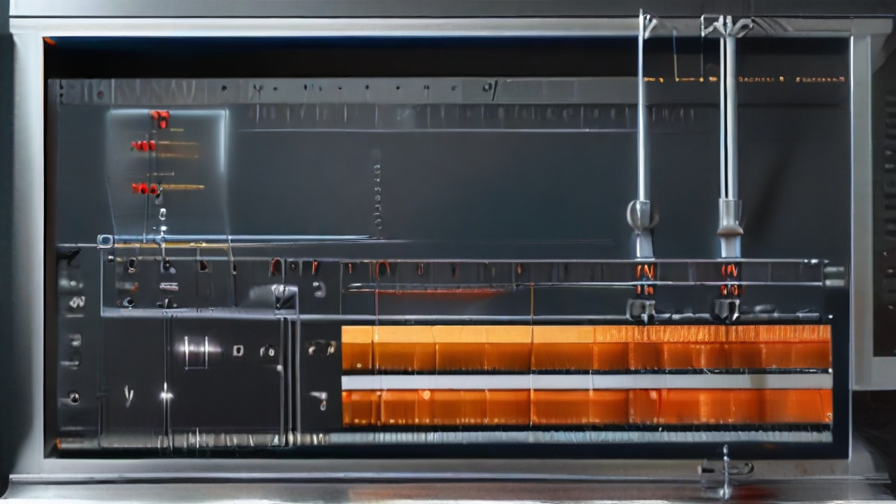
How to use “ffs machine”
Using an FFS (Form Fill and Seal) machine involves several steps to ensure efficient and safe operation. Here’s a concise guide:
1. **Setup and Preparation**:
– **Unpack and Position**: Place the FFS machine on a stable surface, ensuring it’s level.
– **Connect Power**: Plug the machine into a power source and switch it on.
– **Load Film Roll**: Place the packaging film roll on the designated holder, ensuring the film is correctly aligned and tensioned.
2. **Machine Configuration**:
– **Set Parameters**: Use the control panel to input parameters like bag length, seal time, temperature, and filling volume.
– **Calibrate Sensors**: Adjust sensors for film tracking and product detection, ensuring accurate operation.
3. **Filling and Sealing**:
– **Load Product**: Ensure the product to be packaged is loaded into the hopper or feeding system.
– **Start Operation**: Initiate the machine’s operation via the control panel. The machine will automatically form, fill, and seal the packages.
– **Monitor Operation**: Continuously monitor the machine to ensure proper function, adjusting settings as necessary.
4. **Maintenance and Troubleshooting**:
– **Regular Checks**: Perform routine inspections for wear and tear on seals, cutters, and other critical parts.
– **Cleaning**: Regularly clean the machine to maintain hygiene and prevent contamination.
– **Troubleshooting**: Refer to the user manual for common issues. For example, misaligned film can cause faulty seals, which can often be corrected by realigning the film and adjusting the tension.
5. **Safety Protocols**:
– **Use Safety Guards**: Ensure all safety guards and covers are in place before operation.
– **Training**: Operators should be trained on the machine’s operation, safety protocols, and emergency procedures.
By following these steps, you can effectively use an FFS machine to automate the packaging process, increasing efficiency and maintaining product quality.
“ffs machine” Comparative Analysis
### Comparative Analysis of FFS Machines
**FFS (Form-Fill-Seal) Machines** are crucial in packaging industries, designed to automate the process of forming, filling, and sealing packages. Here’s a comparative analysis focusing on their key aspects:
#### 1. **Types of FFS Machines**
– **Horizontal FFS (HFFS) Machines**:
– **Usage**: Ideal for packaging solid items like snacks, pharmaceuticals, and hardware.
– **Speed**: Generally faster due to continuous motion capabilities.
– **Footprint**: Requires more floor space.
– **Flexibility**: Versatile with a wide range of packaging formats.
– **Vertical FFS (VFFS) Machines**:
– **Usage**: Best for granular or liquid products like powders, sauces, and grains.
– **Speed**: Slightly slower compared to HFFS, but improvements in technology are closing this gap.
– **Footprint**: More compact, suitable for limited space.
– **Flexibility**: Limited by the vertical drop process.
#### 2. **Material Compatibility**
– **Flexible Films**: Both HFFS and VFFS machines can handle various types of flexible films, including polyethylene, polypropylene, and laminates.
– **Rigid Materials**: HFFS machines are more capable of handling rigid materials due to their horizontal orientation.
#### 3. **Cost and Maintenance**
– **Initial Investment**: HFFS machines tend to be more expensive due to their complex mechanics and higher speed capabilities.
– **Maintenance**: VFFS machines are typically easier and cheaper to maintain, with fewer moving parts.
#### 4. **Customization and Integration**
– **HFFS Machines**: Offer greater customization options for complex packaging needs. Easier to integrate with upstream and downstream processes.
– **VFFS Machines**: While less customizable, they are straightforward to integrate and ideal for standard packaging lines.
#### 5. **Industry Applications**
– **HFFS Machines**: Widely used in food and beverage, pharmaceuticals, and cosmetics industries for their speed and flexibility.
– **VFFS Machines**: Predominantly used in food packaging (snacks, grains) and agricultural products (seeds, fertilizers).
### Conclusion
**Choosing between HFFS and VFFS machines** depends on your specific packaging needs. For higher speed and versatility, HFFS is preferable. For compactness and simpler maintenance, VFFS is more suitable. Assessing your product type, space availability, and budget will guide the best choice.
“ffs machine” Warranty and Support
### FFS Machine Warranty and Support
**Warranty Overview:**
The FFS (Form-Fill-Seal) machine typically comes with a standard manufacturer’s warranty, often covering one year from the date of installation. This warranty usually includes:
1. **Parts and Labor:** Coverage for defective parts and the labor required to replace them.
2. **Technical Support:** Access to technical support for troubleshooting and repairs.
3. **Preventive Maintenance:** Some manufacturers offer free preventive maintenance visits during the warranty period.
4. **Exclusions:** The warranty may exclude consumables, wear and tear parts, and damages due to misuse or improper maintenance.
**Extended Warranty:**
Many manufacturers offer extended warranty options, which can extend the coverage period for an additional fee. This can be particularly beneficial for businesses looking to ensure long-term reliability and support for their FFS machines.
**Support Services:**
Manufacturers typically provide a range of support services to ensure the smooth operation of FFS machines:
1. **24/7 Customer Support:** Round-the-clock access to customer service for urgent issues.
2. **On-site Service:** Trained technicians can be dispatched to perform on-site repairs and maintenance.
3. **Remote Diagnostics:** Advanced machines may come with remote diagnostic capabilities, allowing technicians to troubleshoot issues without needing to be physically present.
4. **Training Programs:** Comprehensive training for machine operators to ensure efficient and safe operation.
5. **Spare Parts Availability:** Quick access to genuine spare parts to minimize downtime.
6. **Software Updates:** Regular updates to the machine’s software to improve functionality and fix bugs.
**Service Contracts:**
Post-warranty service contracts are available, offering regular maintenance, priority support, and discounted rates on parts and labor. These contracts can be tailored to the specific needs and usage patterns of the business.
**Importance of Proper Maintenance:**
Regular maintenance is crucial to prolong the life of the FFS machine and ensure it operates at peak efficiency. Following the manufacturer’s recommended maintenance schedule can prevent breakdowns and reduce the total cost of ownership.
**Conclusion:**
Understanding the warranty and support options for your FFS machine is essential for maintaining its performance and longevity. Opting for extended warranties and service contracts can provide peace of mind and ensure that your machine remains in top working condition.
List “ffs machine” FAQ
### FFS Machine FAQ
**1. What is an FFS machine?**
An FFS (Form-Fill-Seal) machine is an automated packaging machine that forms packages, fills them with product, and seals them in one continuous process.
**2. What types of products can be packaged using FFS machines?**
FFS machines can package a wide range of products, including liquids, powders, granules, and solids. They are used in industries like food and beverages, pharmaceuticals, chemicals, and consumer goods.
**3. What are the main types of FFS machines?**
There are two main types of FFS machines:
– **Vertical FFS (VFFS):** Forms packages from vertical rolls of film.
– **Horizontal FFS (HFFS):** Forms packages from horizontal rolls of film.
**4. What materials are used for packaging in FFS machines?**
Common packaging materials include polyethylene, polypropylene, laminated films, and other heat-sealable materials.
**5. What are the advantages of using FFS machines?**
– **Efficiency:** Automates the packaging process, increasing speed and consistency.
– **Cost-Effective:** Reduces labor costs and material waste.
– **Versatility:** Can handle various product types and package sizes.
– **Hygiene:** Minimizes human contact, maintaining product cleanliness.
**6. How do FFS machines work?**
FFS machines work in three main stages:
1. **Form:** The machine forms a package from a roll of film.
2. **Fill:** The formed package is filled with the product.
3. **Seal:** The package is sealed to protect the contents.
**7. What maintenance is required for FFS machines?**
Regular maintenance includes cleaning, lubrication, checking for wear and tear, and replacing worn parts to ensure optimal performance and longevity.
**8. Can FFS machines be customized?**
Yes, FFS machines can be customized to suit specific product requirements, packaging materials, and production speeds.
**9. What are common issues with FFS machines?**
Common issues include film jams, inconsistent sealing, and machine malfunctions, which can be minimized with regular maintenance and proper operation.
**10. How to choose the right FFS machine for your needs?**
Consider factors such as product type, packaging material, production speed, and budget. Consulting with a supplier or manufacturer can also help in making an informed decision.
Top 10 FAQ with answer about ffs machine for Buyer Sourcing from China
Sure! Here are the top 10 FAQs with answers about sourcing FFS (Form Fill Seal) machines from China:
1. **What is an FFS machine?**
– FFS machines are automated systems used to form, fill, and seal packages, commonly used in food, pharmaceutical, and chemical industries.
2. **Why source FFS machines from China?**
– China offers competitive pricing, a wide variety of models, and rapid technological advancements in FFS machines, making it a cost-effective option.
3. **What factors should I consider when selecting an FFS machine?**
– Consider the machine’s speed, accuracy, compatibility with packaging materials, size, ease of use, and after-sales service.
4. **How can I verify the quality of an FFS machine from a Chinese supplier?**
– Check certifications (CE, ISO), request customer references, inspect the machine via video call, and consider a third-party inspection.
5. **What are the lead times for delivery?**
– Typically, lead times range from 30 to 60 days, depending on the machine’s complexity and customization requirements.
6. **What are the payment terms?**
– Common terms include a 30% deposit upfront and 70% balance before shipment. Letters of Credit (L/C) are also accepted by some suppliers.
7. **Can I customize the FFS machine?**
– Yes, most Chinese manufacturers offer customization to meet specific requirements, including size, material compatibility, and automation level.
8. **What about installation and training?**
– Many suppliers provide installation and training services, either onsite or via online platforms, ensuring smooth operation and maintenance.
9. **How is after-sales support handled?**
– After-sales support typically includes online assistance, spare parts supply, and, in some cases, technician visits. Ensure the supplier offers a clear after-sales support plan.
10. **What are the shipping and importation considerations?**
– Confirm shipping costs, packaging details, and compliance with local import regulations. Work with a reputable freight forwarder to handle logistics and customs clearance.
By addressing these FAQs, buyers can make informed decisions when sourcing FFS machines from China, ensuring they receive high-quality equipment that meets their needs.

